By Gayantha Dehiwatte
Our country is very similar to countries on which America has imposed sanctions, because our country is being administered on IMF terms for the benefit of the creditors, which is in my opinion, not for the wellbeing of our people.
Therefore, to escape this trap, I propose that we work with the countries that have been subjected to such injustices, prioritise the settlement of international transactions, and adopt a new currency. In this way, engaging with this bloc of countries would allow transactions to be conducted entirely bypassing the US dollar ($).
For example, if we purchase raw materials related to energy production from Russia in rubles, we could save about five hundred million US dollars in our country’s monthly expenses. That is the largest US dollar expense we incur each month. In this way, we could save about half of our country’s total monthly US dollar expenditure.
Furthermore, by purchasing energy directly from producers – bypassing intermediaries – and importing raw materials instead of finished goods for local processing, the country can save a substantial amount of foreign exchange each month. The diesel, petrol, jet fuel, gas, and electricity produced in this way would save the government foreign exchange and increase the government’s non-tax revenue through the sale of these to the public.
Not only that, but the production of fertiliser, tar, plastic, and nylon from the by-products of the refinery will also generate long-term foreign exchange savings for the government, leading to a continuous increase in State revenue.
By implementing this system, State assets will continue to grow, enabling the government to provide energy to the public at a significantly lower cost. This, in turn, will reduce both the cost of living for citizens and production costs for local industries.
Bolstering rupee
Furthermore, the refined materials produced locally can be sold to ships and aircraft, and – given the ongoing Russia-Ukraine war and Israel-Iran tension – can also be exported to Europe, creating ample opportunities to earn foreign exchange. Specifically, our island is situated in the middle of a very busy sea route, and the ability to refuel at Hambantota is very profitable for shipping liners, since they can carry an extra load. This strategy has the potential to earn around $ 30 billion annually, easily twice the size of our export earnings. The full investment needed to achieve energy sector independence can be secured from Russia, with financing arranged through a debt/equity scheme in rubles.
This will create a very prosperous economy by providing very cheap energy and fertiliser. This will also lead to an increase in the overall production of the country through the revival of the farming, fishing, and other industrial sectors. The growing agricultural surplus could be exported to Russia and the Middle East – currently operating under a war economy – and could even be used to help repay debts denominated in rubles. As economic surpluses grow and dollar-denominated debt declines, the value of the Sri Lankan rupee will rise and strengthen.
To sustain and enhance this strength, the volume of goods and services produced domestically using the rupee must also increase. I emphasise that the only way to permanently escape the dollar debt trap is by aligning with an alternative currency and achieving energy sovereignty in parallel. As mentioned above, this system can facilitate exchange settlement, complemented by new currencies for financing and raw material sourcing aimed at building a robust manufacturing economy.
New paths for trade settlements
The Russian ruble is considered a currency that can be used to break away from the US dollar, as the ruble is already easily convertible to the currencies of China, India, and Iran, and Russia is a member of the BRICS countries. Russians have been knocking on our doors urging us to accept rubles and issue rupees in return, and this could be used as a strategic step toward facilitating BRICS membership in the long run. It is important to be part of the emerging multipolar world, which is led by Russia and China. Similarly, it is critical to offer a geopolitical footprint to Russia, in order to de-dollarise and decolonise our economy.
Another example is the BRICS group – Brazil, Russia, India, China, and South Africa – which has demonstrated the capacity to conduct transactions without relying on the US dollar. Furthermore, countries in the BRICS group are already successfully settling international transactions without relying on the US dollar.
Exchange settlements among BRICS countries
- Exchange settlement between Russia and China takes place using each other’s currencies. However, Russia demands rubles from the rest of the world in exchange when supplying goods to other countries, except China
- Exchange settlement between Iran and China takes place using each other’s currencies (rial and yuan)
- India exports agricultural and industrial output to Iran and receives rial as payment. Subsequently, those rial are used to purchase Iranian oil and gas. India applies the same international transaction method with Russia as well
- Brazil recently issued international sovereign bonds in yuan to create a yuan reserve in the Brazilian central bank, in order to use yuan for trade settlements or cross-border payments
- China has taken the initiative to provide concessionary yuan loans to countries willing to use yuan as a reserve currency for exchange settlement purposes
This is a special example: Egypt is not part of BRICS, yet it was given a $ 29 billion worth of loan by Russia to build a nuclear power plant, with repayment due in rubles. Sri Lanka can adopt a similar approach, raising rubles through both debt and equity in conjunction with energy-related projects, because rubles are easily convertible to yuan and vice versa.
A model past its prime
Ironically, the US used the same method as China after the Second World War. America provided US dollar loans through the IMF to infuse US dollar reserves into central banks around the world. America used this strategy to dismantle the pound trading bloc, which was controlled by the British Empire, subsequently dethroning Britain and rising to the status of a global empire, making the US dollar the international settlement currency.
Sri Lanka also has the opportunity to join the BRICS forum. Either way, Sri Lanka already has the ability to use the Chinese digital currency or rubles to settle international transactions. In particular, the Chinese digital currency (digital RMB) has developed an exchange settlement system that is far superior to SWIFT (the American exchange settlement system). Transaction time is measured not in days but in seconds. It has slashed most of the transaction cost while improving security as well. Transactions are traceable since they use blockchain technology to minimize fraud. Currently, Chinese currency is being used in 50 markets, and 33 clearing houses have been established globally. HSBC Global, a well-known bank familiar to us, is carrying out trade settlements in digital RMB among countries around the world and is also connected to mainland China’s Cross-Border Interbank Payment System (CIPS).
In conclusion, using alternative currencies for trade settlements or cross-border payments should be considered in conjunction with energy sovereignty in order to bypass the potential constraints imposed by the IMF, which is led by the US immediately after energy is secured through alternative currencies, the country must work on food sovereignty and increasing necessary production output. None of the above is possible without reclaiming the central bank for the State. Unfortunately, as an independent unit, our central bank is working for the benefit of bondholders, not in the national interest.
In addition, current US trade policies (Trump’s tariffs) signal a fundamental shift in globalisation, particularly against the IMF-led neocolonial export-driven economic model. There is a clear policy conflict between two global institutions based in Washington. In that light, it is high time for Sri Lanka to stop the US from weaponising its currency against our sovereignty.
*The writer is a graduate from Monash University Melbourne Australia, an entrepreneur and the author of the book ‘Wikalpa Maga – De-Dollarization’.
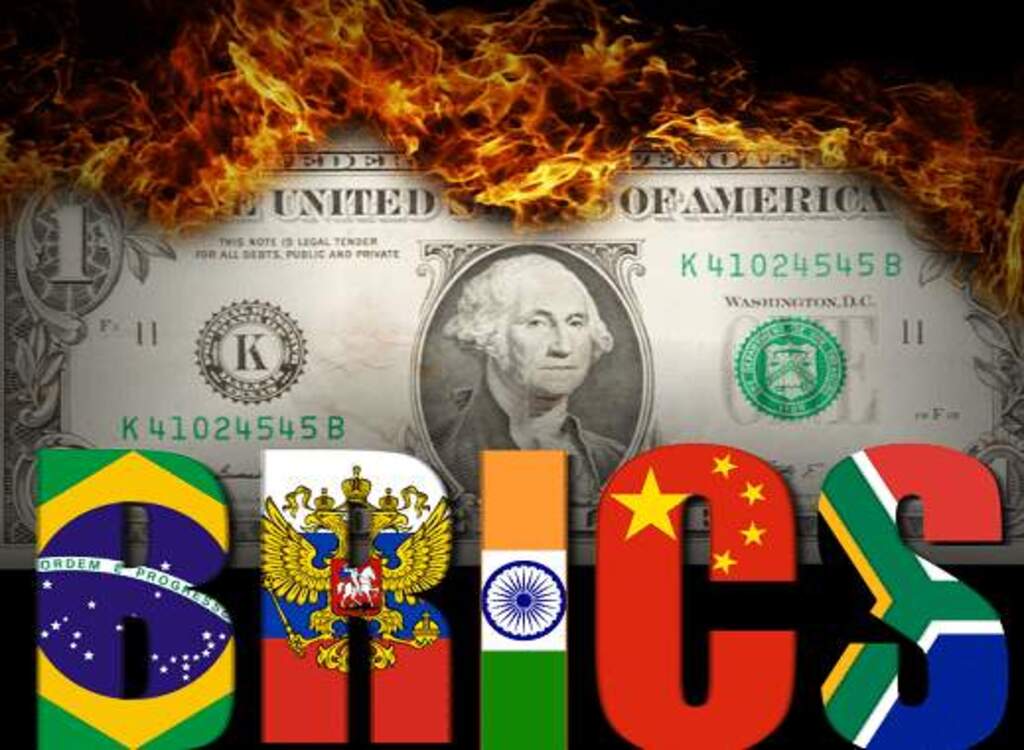
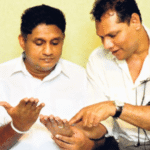

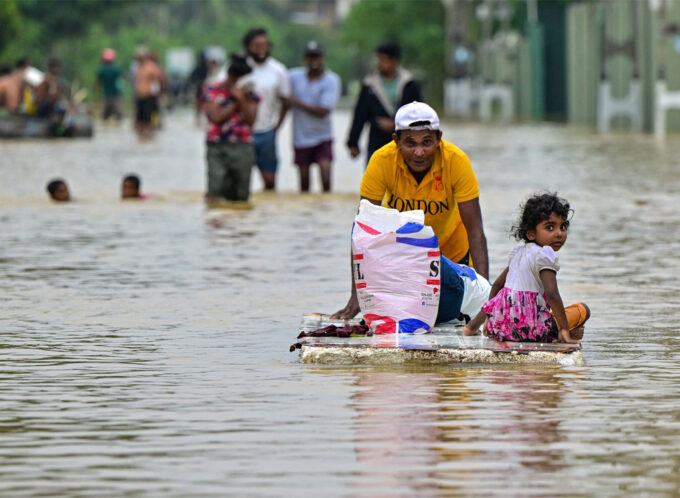


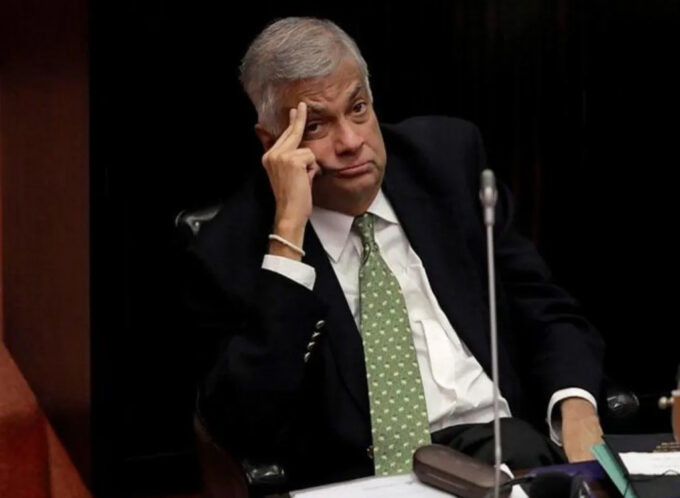


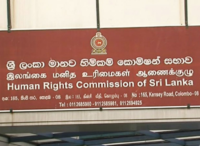
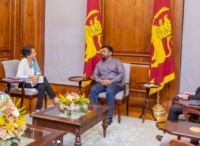
Leave a comment